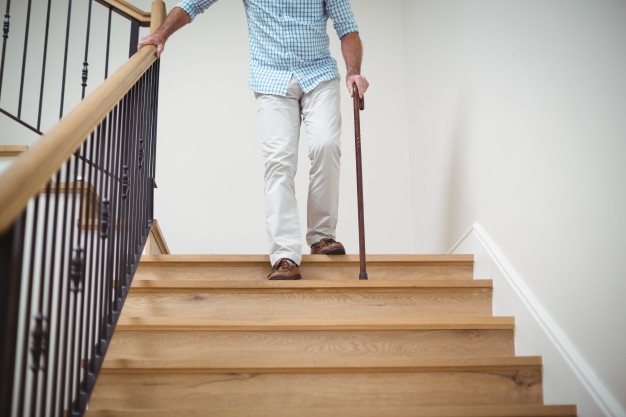Living Alone? Home Safety Tips for the Elderly
Nearly every elderly person wants to stay in the privacy and comfort of their own home for as long as possible. That’s why nearly a third of seniors don’t live in a care facility live alone, including about half of women over the age of 75. Whether they want to remain a part of their local community or just stay in a familiar place, it’s hard to put a price on independence.

But living alone comes with risks. Seniors can be vulnerable to feelings of depression and isolation, they can suffer from memory problems which challenge their independence, and they can be placed in danger by a number of common household hazards. Many older adults can live independent lives alone, but that means taking the right precautions to ensure that living alone doesn’t mean living in risk.
Maintain a Healthy Lifestyle
As odd as it might sound, the number one safety tip for elderly people living alone is to stay healthy. A healthy lifestyle is your best defense against the numerous risks provided by old age. Having the appropriate diet, getting regular exercise, and always getting enough rest can go a long ways towards your ensuring your health and wellbeing. A senior’s ability to live alone is directly proportional to their ability to remain healthy, and that means being able to take care of your body.
Backup Supplies
If you live in an area susceptible to power outages, it’s prudent to have backup supplies that include blankets, batteries, candles, and flashlights. Seniors living alone will also want enough non-perishable food and bottled water stored away to ensure that everything will be okay, even if you’re unexpectedly unable to go shopping for a few days. With any luck, those supplies will never have to be used, but they’ll still provide you with some peace of mind at very little expense.
Fixing Household Hazards
Falls are a leading cause of injuries for seniors. Suffering a fall can mean an almost instantaneous loss of independence, as a fracture can easily lead to extended hospital stays or disability. To reduce the risk of suffering a fall, be sure to install non-slip floor mats and handrails at every given opportunity.
Doormats are much more than decorations; they can stop water from being tracked in, which might serve as an easily forgettable slipping hazard. It’s also important to be on the lookout for tripping hazards, like stray wires plugged into outlets, or even poor lighting. Additionally, be sure that everything is well within reach. Often times, climbing up on stepstools or counters to reach things on a high shelf is a recipe for disaster.
Checking In and Socialising
Last but not least, seniors who live alone should give and receive regular checkups with their friends and family. Regular checkups help ensure that everything is okay and that needs are being met. They even help battle the sense of isolation that seniors are prone to, which is why it’s also a good idea to interact with other seniors in the area. Your local community centre of "Neighbourhood House" can serve as a gateway to a variety of services and activities that are available in your community. Many of them offer music, shopping, dancing, health screening, counseling, and other opportunities to get out and socialise.
Independent living can be as fulfilling as it can be challenging. The risk of feeling or being isolated or suffering an injury without nearby help can be daunting. But if you take some of these simple senior safety tips to heart, you’ll be able to rest easier knowing that you’ve helped provide a safer environment for your loved one.
Aged Care Placement Guide

Aged Care Planning in the Holiday Season
ResiCare Financial Changes - July 2025
Higher Everyday Living Fee (HELF)
Guide to Residential Care
Eligibility and Assessment
Residential Care Financials
Hints and Tips
Selecting the Aged Care Home
Admission Day
Transition and Settling In
Residential Care STAR Ratings